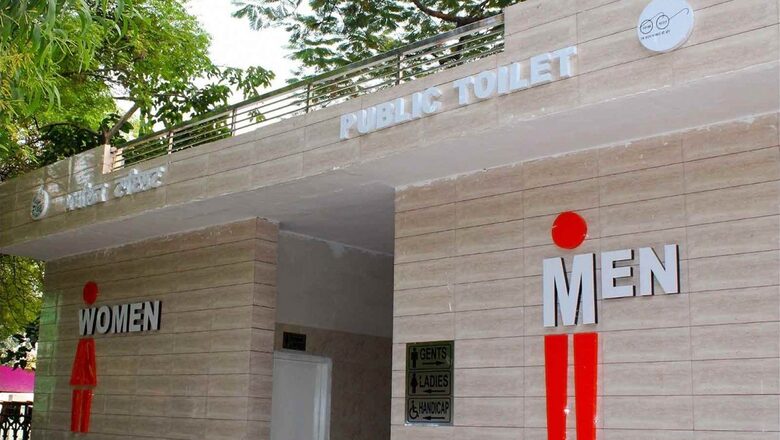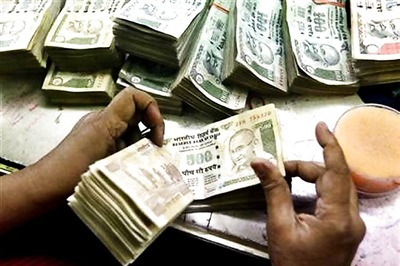
views
For those of us who read the news, India has a lot of reasons to be proud: we’re hurtling towards a $5 Trillion economy, our UPI platform is being used internationally, we have the world’s second largest road network, and between Mission AYUSH and ABHA, healthcare is set to become ever more accessible to the masses.
One area where our experience remains bittersweet is sanitation. While access to toilets has vastly improved, usage hasn’t kept pace. Sanitation standards improve when the larger populace understands the deep linkages between sanitation and health outcomes, and in building a stronger nation.
Mission Swachhta aur Paani, an initiative by News18 & Harpic, is a movement that upholds the cause of inclusive sanitation where everyone has access to clean toilets. In this article, we review all the ways in which good sanitation impacts our health, our communities, and our nation.
A healthier future through healthier children
One of the first places where sanitation makes a tangible difference is in the life expectancy and quality of life of young children. Inadequate sanitation can lead to the transmission of diseases such as cholera, diarrhea, and typhoid, which can be fatal for infants and young children. In fact, diarrheal diseases caused by poor sanitation and hygiene are responsible for 525,000 deaths of children under five years old each year, according to the World Health Organization.
Improving access to clean water and safe sanitation facilities can significantly reduce the incidence of these diseases, leading to lower infant mortality rates and improved overall health for children. Moreover, by reducing the burden of diseases caused by poor sanitation, families are better able to allocate resources towards proper nutrition and healthcare for their children, leading to reduced rates of malnutrition and improved overall health outcomes.
Healthier women, healthier families
Access to safe and hygienic toilets can provide women with increased privacy and security, reducing the risk of violence and harassment. Additionally, proper menstrual hygiene management, which requires access to clean water and sanitation facilities, can improve women’s health and well-being, as well as their ability to attend school or work. Women, who bear the responsibility of hygiene for their families, are also able to help inculcate healthier habits for children, right from the start, making them less susceptible to sanitation related diseases.
Better sanitation, healthier communities
In terms of public health, poor sanitation practices can lead to the spread of diseases such as cholera, typhoid, and hepatitis A, which can be transmitted through contaminated water or unsanitary conditions. In fact, inadequate sanitation facilities can also increase the transmission of respiratory infections (directly linked to hand-washing) and vector-borne diseases such as malaria and dengue fever (linked to standing water). By contrast, access to safe and hygienic sanitation facilities can significantly reduce the incidence of these diseases, leading to improved health outcomes for the entire community.
This reduced burden translates two ways – one for the community itself. The money saved on medical expenditure is spent on better nutrition, and therefore, stronger immunity. The other takes the shape of reduced burden on public health infrastructure – what we now call ‘flattening the curve’. When cholera outbreaks are few and far between, our hospitals can cope, resulting in better outcomes for everyone.
Another unexpected way in which improved sanitation helps the community lies in the health and dignity for sanitation workers. Sanitation workers are often exposed to hazardous and unsanitary conditions, putting them at risk of contracting diseases and suffering from occupational health hazards. When we train our sanitation workers on best practices for safeguarding themselves and their families, when we understand the impact of good sanitation in our lives, we understand how important the work these people do is – which helps uplift their station in our society.
Cleaner societies, healthier economies
The World Bank estimates that poor sanitation costs low-income countries up to 6.4% of their GDP due to the impact of diseases and lost productivity. Inadequate sanitation can lead to increased healthcare costs, reduced productivity, and decreased economic growth. On the other hand, good sanitation practices can lead to improved health outcomes, reduced healthcare costs, and increased productivity, contributing to economic growth and development.
In addition to reducing the economic burden of poor sanitation, good sanitation practices can also create economic opportunities. Investment in sanitation infrastructure and services can create jobs in areas such as construction, maintenance, and waste management. In India, the Swachh Bharat Mission resulted in the construction of 10.9 crore toilets and the Jal Jeevan Mission connected nearly 11 crore households to running water supply. All of these resulted in jobs not only during the construction phase, but also created continued employment for maintenance, repair and allied functions up the supply chain.
Clean countries are attractive countries
One of the more tangible results of improved sanitation is seen in tourism. By and large, people prefer holidaying in destinations that are clean, well organized and well laid out. Think about how you plan your holiday: would you rather plan a holiday that involves pristine beaches and well organized, clean streets or a beach littered with plastic, and roads choked with garbage? India has a wealth of experiences to offer to the international traveler, and we can really bump up our attractiveness to international travelers by improving access to clean water, and better access to toilets. We attract tourists who spend freely, buy our artworks and handicrafts, keep our hotels and restaurants flush with business, and treat our tourist destinations with respect.
The Mindset Gap
While the Swachh Bharat Mission has been a resounding success in terms of improving access to toilets, the gap remains in the mindsets that keep people from using them. This is where awareness and communication plays a monumental role. According to a NITI Aayog report, behavioral change is the core of the Swachh Bharat Mission since access alone does not translate into usage. The core issue is this: most people do not see how deep the connection between good sanitation and good health goes.
This is the issue that Mission Swachhta aur Paani, an initiative by News18 and Harpic, aims to address. Mission Swachhta aur Paani advocates equality for all genders, abilities, castes and classes and strongly believes that clean toilets are a shared responsibility. Mission Swachhta aur Paani is also attempting to create an ecosystem that will help India make the most of available water resources, so no home in India has to compromise on health and hygiene due to inadequate availability of water.
On April 7th, on the occasion of World Health Day, News18 and Harpic are hosting an exciting event to drive behavioral change on toilet use and sanitation as a part of the larger Mission Swachhta aur Paani initiative. The event will feature a keynote address by Reckitt leadership, interactive Q&A sessions, and panel discussions. The speakers include Union Minister of Health & Family Welfare, Mansukh Mandaviya, Deputy CM of Uttar Pradesh, Brajesh Pathak, Senior VP – South Asia, Reckitt, Gaurav Jain, Director of External Affairs & Partnerships, SOA, Reckitt, Ravi Bhatnagar, UP Governor Anandiben Patel, actors Shilpa Shetty and Kajal Aggarwal, Regional Marketing Director of Hygiene, Reckitt South Asia, Saurabh Jain, sportsperson Sania Mirza and Padma Shri S. Damodaran, Founder of Gramalaya, among others. The event will also feature on-ground activations in Varanasi, including a visit to Primary School Naruar and a ‘Chaupal’ interaction with sanitation heroes and volunteers.
Join the conversation here https://www.news18.com/missionswachhtapaani/, to help move the needle on a Swachh Bharat and a Swasth Bharat.
Read all the Latest News here




















Comments
0 comment